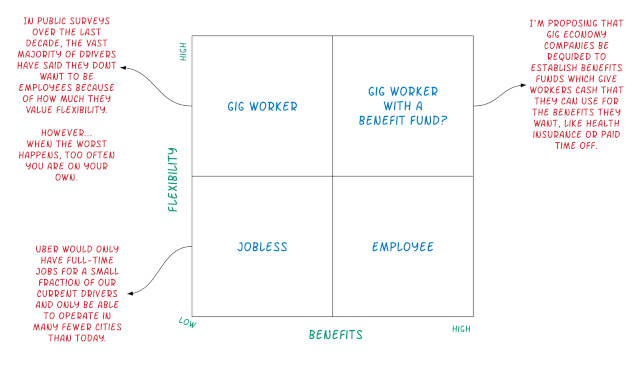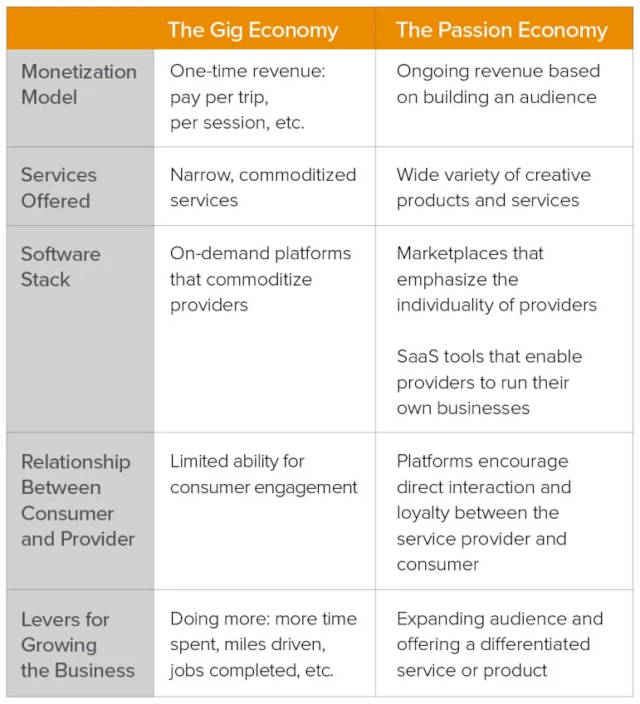[Photo by Dan Gold on Unsplash]
Welcome to This Week in Disruptive Tech, a weekly column and newsletter that focuses on the intersection between tech and society. If you like it, please do share it with your friends and colleagues. If you have any feedback or comments, please add to the Comments section below. If you haven't subscribed already, you can subscribe here. It will hit your inbox every Wednesday.
In January this year, a new law, called AB5, came into effect in California. It was supposed to make it harder for companies to hire workers as independent contractors rather than as employees. The idea was to push companies such as Uber and Lyft to hire their drivers as employees with benefits such as health insurance and paid sick leave.
Only, Uber and Lyft continued to hire them as contractors. So, in May, California filed a lawsuit against the companies, and recently, a judge issued a preliminary injunction ordering them to consider all drivers employees. “To state the obvious, drivers are central, not tangential, to Uber and Lyft's entire ride-hailing business,” the judge wrote.
It might not have been that obvious to those who see tech as central to platform businesses, and everything else as tangential. As a modern day anthem goes, “Uber, the world’s largest taxi company, owns no vehicles. Facebook, the world’s most popular media owner, creates no content. Alibaba, the most valuable retailer, has no inventory. And Airbnb, the world’s largest accommodation provider, owns no real estate.”
But, the big question is whether we are stuck between these two options. In a widely cited opinion piece, Uber CEO Dara Khosrowshahi argues that there is a “third way”—establishing benefit funds for gig workers. “Our current system is binary, meaning that each time a company provides additional benefits to independent workers, the less independent they become. That creates more uncertainty and risk for the company, which is a main reason why we need new laws and can’t act entirely on our own,” he wrote.
Here’s a summary of his argument.

(Click to see a larger image)
When the economy is in the dumps, and when employees everywhere (at least those who have managed to retain their jobs) seem to have done better than gig workers, one can expect that such arguments will be seen merely as shirking responsibility. And Khosrowshahi’s argument has gotten its share of pushback.
Whether we solve the problem using benefit funds or through better business models, it’s a good thing that the problems have been acknowledged in the first place. We might do well to remember that even traditional employees didn’t have these benefits throughout. It happened because of the market system responding to pressure from those who wanted change.
In a television series, The Age of Uncertainty, a man playing Karl Marx reads out a list of reforms with great passion.
And economist John Kenneth Galbraith cuts in to say this: “In one way or another in the advanced capitalist countries quite a few of these things… have been done. And these reforms have helped take the raw edge off capitalism. Thus they have had the effect of postponing that ‘forcible overthrow of all existing social conditions’ for which Marx called. In such fashion did Marx work against Marx.” Systems evolve by responding to feedback.
There is one strand of the gig economy that’s already evolving. As Li Jin wrote in the A16Z website last year:
“New digital platforms enable people to earn a livelihood in a way that highlights their individuality. These platforms give providers greater ability to build customer relationships, increased support in growing their businesses, and better tools for differentiating themselves from the competition. In the process, they’re fueling a new model of internet-powered entrepreneurship.
“It’s akin to the dynamic between Amazon—the standardised, mass-produced monolith—and the indie-focused Shopify, which allows users to form direct relationships with customers. That shift is already evident in marketplaces for physical products; it’s now extending into services.”

(From The Passion Economy and the Future of Work, a16z.com)
By no means does this suggest that the gig economy will turn into a passion economy with all these benefits. It’s merely one strand to evolve out of gig economy platforms. The fundamental issues around the gig economy remain—and they need to be fixed.
Is ageing an illness that can be cured?

[Photo by sasan rashtipour on Unsplash]
In the Jara Sutta, Buddha tells Ananda, “When young, one is subject to ageing; when healthy, subject to illness; when alive, subject to death.”
Just as illness can be cured, some scientists believe that ageing can be cured. Only we should look at it as an illness. In fact, a couple of years ago, an organisation called The Healthy Life Extension Society asked the WHO to officially enlist ageing as a disease. They believed this will help push research in the field.
WHO didn’t agree, but there are interesting studies going on around ageing. One of the problems with studying it is that ageing depends on both internal and external factors. It’s hard to control external factors, except in a lab.
One set of researchers, led by Stephanie Venn-Watson, co-founder and CEO of Epitracker, found an interesting alternative. They picked up dolphins used to the US Navy, which grew up in the same oceanic environment, had the same diet and healthcare, to see if they can differentiate slow and accelerated ageing in dolphins. Now, with due apologies to dolphins, they are a lot like human beings. They live relatively long (lifespan of a rat is 1-2 years, that of a dolphin is 40), and they catch diseases such as high cholesterol, chronic inflammation, and Alzheimer’s.
And the study could, in fact, document ageing rate differences. Reporting on the study, Inverse quotes Venn-Watson: “Importantly, we could clearly differentiate slow and accelerated ageing dolphins despite the fact that all dolphins in the population shared the same diet, health care, and oceanic environment.” The finding “supports that key, non-environmental drivers of ageing rate can be identified, and thus, may be targeted to slow aging itself.”
What does optimism sound like these days?

[Image by David Mark from Pixabay]
Steven Levy of Wired asked Bill Gates if he was optimistic. Gates said, ‘yes’. But let that not fool you. Here’s his full answer.
“Yes. You have to admit there’s been trillions of dollars of economic damage done and a lot of debts, but the innovation pipeline on scaling up diagnostics, on new therapeutics, on vaccines is actually quite impressive. And that makes me feel like, for the rich world, we should largely be able to end this thing by the end of 2021, and for the world at large by the end of 2022. That is only because of the scale of the innovation that’s taking place. Now whenever we get this done, we will have lost many years in malaria and polio and HIV and the indebtedness of countries of all sizes and instability. It’ll take you years beyond that before you’d even get back to where you were at the start of 2020. It’s not World War I or World War II, but it is in that order of magnitude as a negative shock to the system.”
Also read
How the pandemic might play out in 2021 and beyond | Nature

